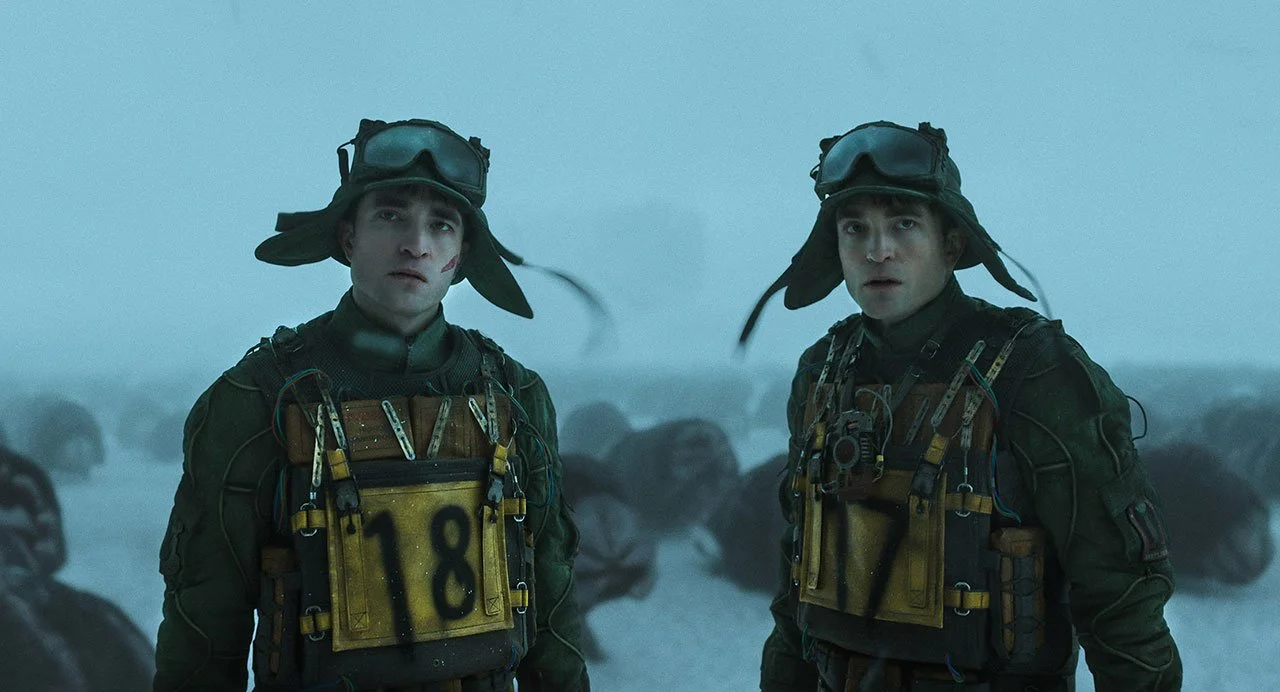The Creator Lacks Creativity
What you need to understand is that AI is the enemy. It’s the enemy of the Hollywood writers recently on strike; it’s the enemy of authors whose works are being used without permission to train algorithms. And it’s definitely, absolutely, without a shred of doubt, the enemy in Gareth Edwards latest science fiction marvel, The Creator.
The movie follows John David Washington’s Joshua, an American who begins the film undercover in New Asia hunting Nirmata, or “the Creator,” the mastermind behind AI advances and America’s public enemy number one. After a surprise assault blows his cover and leaves his wife, Maya (Gemma Chan), as one of the casualties, Joshua returns to the US to wallow in grief. But (not ten minutes later) he’s pulled back in. The fact that the military has concerns of a new super weapon dubbed Alpha O does little to persuade Joshua. But they follow it up with evidence that Maya is actually alive, and Joshua is in.
It’s not the only early twist. On the cusp of completing his mission, Joshua discovers that Alpha O is an AI child (played by newcomer Madeleine Yuna Voyles). An AI child was previously considered an impossibility, an uncanny leap forward in technology. Before Joshua can overcome the moral dilemma of destroying what appears to be a child, he’s injured and Alpha O escapes. Our hero catches up with her and, while he initially uses her for his own gain to find Maya, forms a bond with the young(?) android. Thus begins the real conflict: Who is the real enemy? As Joshua’s journey continues, he’ll have to question the US military’s infallibility, the righteousness of his mission, and what makes for a flourishing society.
Edwards, the director of 2014’s Godzilla and Rogue One: A Star Wars Story, has crafted another story that makes the most of his resources to craft vibrant images. If I have one thing to praise (and unfortunately I have but one thing), it’s the visuals and effects that The Creator uses to tell its story. To the movie’s credit, Greig Fraser’s camera is partial to landscapes over the ins and outs of technology and war, depicting the beautiful mountains and oceans that form New Asia.
Unfortunately, even these are derivative and ornamental at best. The Creator’s failures are twofold: neglecting the actual moral quandaries that attend AI and inhabiting a profoundly derivative space.
The real twist of The Creator is that the film has strikingly little to do with AI. There are few questions about how humanity can interact productively with AI, or how AI will change the nature of our relationships. Instead, AI is a mere stand-in for “enemy.” Specifically, an enemy based in Southeast Asia that the US decides to go to war against. There are no ideas to wrestle with; only simplicities to be bombarded by. Other movies, such as A.I.: Artificial Intelligence and After Yang, have developed nuanced intelligences that we connected with despite any initial posture of reluctance. Instead of allowing such uncertainties to cloud the narrative, The Creator takes shortcuts to gain our sympathy. This is a film that manages to kill the hero’s wife not once, but three times for narrative potency. Look how the US soldiers care nothing of life; resonate with the nobility of the AI that only wants to live a peaceful life. It’s not that the story is misguided. It’s bland.
The same is ultimately true of the cinematography. The images merely invoke Apocalypse Now in the same way that the themes gesture at better films like Her. We’ve seen these shots before—the destruction and devastation wrought by the American military—except that there, we witnessed the destruction of men, women, and children. True, the hero tells us repeatedly that the AI can’t die, they just turn “off;” and sure, we’re meant to see through his hypocrisy and (eventually) cherish these AI. But the fact is that we don’t—not the same way that we cherish human life. The movie thus weakens the visceral nature of its violence. And, in its place, we’re left to admire the explosions as much as tremble at them. It takes a striking forcefulness of character development to make us truly mourn an AI, and The Creator doesn’t have the script or performance to strike to the heart.
Edwards’ latest movie is obsessed with the visual semantics of both East Asian cultures and war films. It makes for endless signs but scarce substance. If The Creator is disappointing, it’s because we’ve seen far greater creative reaches in the careers of Edwards and his collaborators. Rogue One articulated that new ideas could come from old forms (at least before Disney clamped down more forcefully on the imagination within the Star Wars universe). With The Creator, Edwards settles for gestures of those forms, without any new ideas to fill them.



